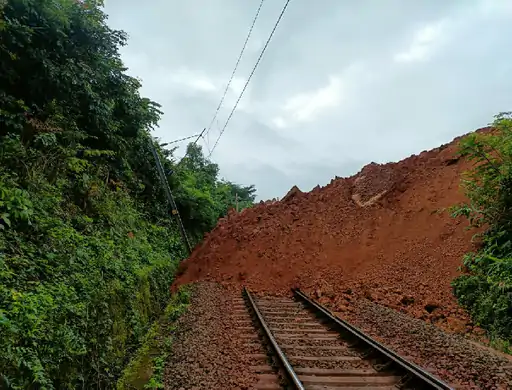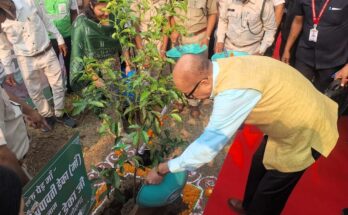Movement of trains on Chhattisgarh-Vishakhapatnam rail route has been stopped for four days. KK (Kirandul-Kottavalasa) between Manabar and Jarti railway stations in Odisha was hit by a landslide on September 24. This route has not been restored yet, due to which more than 5 passenger trains and goods trains have been affected.
The work of removing debris is being done with the help of more than 25 Poklanes and JCB. More than 300 laborers and employees are engaged in work. Officials claim that it may take another 2 to 3 days for the route to be restored. These trains were affected
Every day 4 to 5 passenger trains run on the affected track. Which includes Kirandul-Vishakhapatnam Passenger and Night Express, Samleshwari Express, Rourkela-Jagdalpur Express, Hirakhand Express and others running from Kirandul to Visakhapatnam.
Railways and NMDC lose crores of rupees daily
All the trains are returning from there after stopping at Koraput in Odisha. Traffic has come to a standstill till Jagdalpur. The movement of about 30 goods trains carrying iron from Kirandul every day is also stopped. Railways and NMDC are facing losses worth crores of rupees daily. 3500 cubic meters of soil remains to be removed.
According to railway officials, about 10 thousand cubic meters of soil had come on the tracks due to the landslide. About 7500 cubic meters of soil has been removed. Still about 3500 cubic meters of soil remains to be removed. The OHE can be repaired only after the debris is removed.
GM of Railways inspected
Eco Railway GM Manoj Sharma inspected the landslide site. DRM Saurabh Prasad was also present with him. DRM informed GM about the work being done to restore the route. KK railway line was built 56 years ago for Rs 55 crore.
Kirandul-Kottavalasa railway line (KK) was constructed in 1967 with the assistance of Japanese technology at a cost of Rs 55 crore. The purpose of its construction was to transport iron ore through railways.




